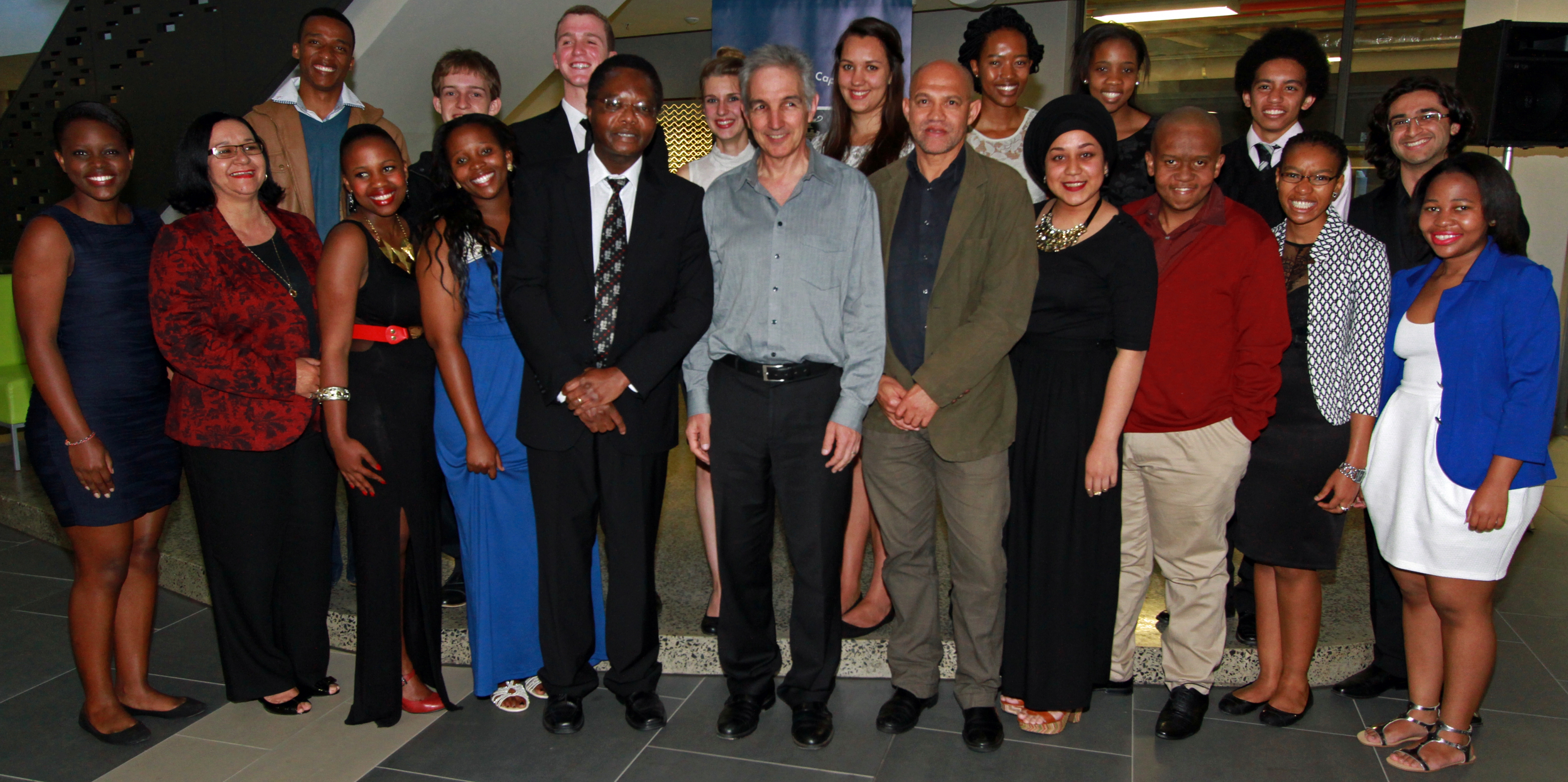UCT Leadership Academy search for 2016 cohort


The 16 Klaus-Jürgen Bathe Leadership Programme students pictured here with Dr. Max Price (UCT Vice Chancellor); Professor Alphose Zingoni (Programme Director) and Dr Russell Ally (Director, UCT Development and Alumni Department).
An innovative student leadership programme is building a bigger pool of socially conscious citizens to ensure a brighter tomorrow in South Africa. The Klaus-Jürgen Bathe Leadership Programme was established at the University of Cape Town to produce graduates who will occupy leadership positions in government, industry and civil society and, using their unique skills, make a difference in South Africa and on the Continent.
The programme was established at the University of Cape Town (UCT) in 2014, thanks to a generous donation from Mechanical Engineering Professor Klaus-Jürgen Bathe of the Massachusetts Institute of Technology (USA). Professor Bathe is a UCT alumnus having earned his first degree (in Civil Engineering and Engineering Mechanics) from UCT in 1967. The new programme is open to all UCT undergraduate students who are currently enrolled for full-time study. In order to be considered however, students must demonstrate above-average academic ability as well as leadership potential. Sucessful candidates are awarded a two-year Klaus-Jürgen Bathe Leadership Scholarship and, in addition to the normal course load, take additional courses in Leadership and fulfil a six-week internship at an approved organisation in South Africa, Germany or the USA. Now in its second cycle, The Klaus-Jürgen Bathe Leadership Programme is searching for its 2016 intake from amongst the best and the brightest students at UCT.
According to the Director Professor Alphose Zingoni, this mentorship model is unique because of its focus on nurturing talented students, preparing them for the immediate challenges facing their society. “There are many leadership programmes in South Africa and elsewhere, but this programme is different in that it specifically aims to find, educate and nurture talented undergraduate students towards becoming leaders who are able to tackle issues at the national level and uplift their countries for the betterment of all citizens” says Professor Zingoni.
Of the 200 applications received in the programme’s inaugural year (2014), 16 students made the final seclection commencing the two-year leadership programme at the beginning of 2015. Four of these are second-year students in the Faculty of Humanities. Jacqualine Van Zyl is pursuing a Bachelor of Social Science degree majoring in International Relations, Sociology and Anthropology; Kamohelo Mabogwane is studying towards a Bachelor of Arts degree majoring in English and Philosophy; Morategi Kale is pursuing a Bachelor of Social Science degree in the Political Studies, Philosophy and Economics (PPE) stream and Mogamat Salie is studying towards a Bachelor of Social Science degree majoring in Economics and International Relations. “This programme has far exceeded my expectations. Being a part of the first cohort of Klaus-Jurgen Bathe Scholars has meant so much to me in more than one aspect of my life. This programme has provided me with skills and experiences that I would have never been exposed to. Additionally, I have met people who are like minded, yet bring a fresh perspective to life as a student at the University of Cape Town. I have met people who I am certain I will be in contact with many years after I have graduated, and that in itself holds such a meaningful contribution to my life” says Jacqualine van Zyl.
To ensure its future sustainability, the The Klaus-Jürgen Bathe Leadership Programme has launched an endowment fund, calling on private donors, government and national agencies to assist in meeting a target of R120 million. “While funding for the first 5 years is already secure, we have a vision of a Programme that eventually supports 30 students at any given time in perpetuity, thus ensuring that the economies of Africa have a continuous supply of excellent young leaders committed to making a difference to their countries” says Professor Zingoni.
Applications are now open for the 2016 cohort. To apply and for additional information, visit the programme website.